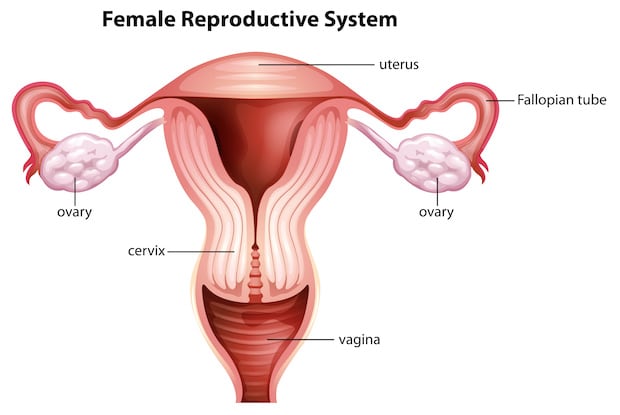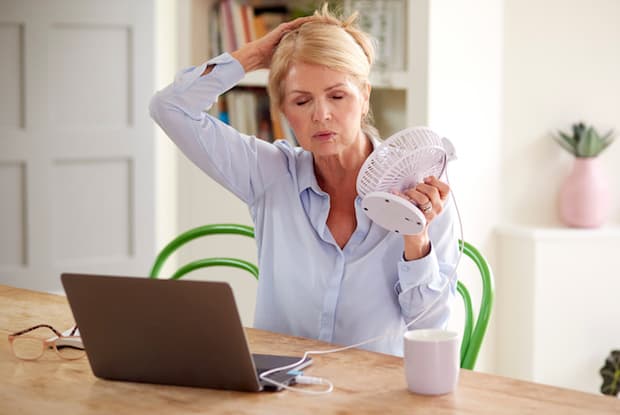Table of Contents
V. Possible Complications of Menopause
VI. Finding the Right Medication for You
What Does Menopause Mean?
Over 20 percent of the American workforce goes through menopause every year. That equals out to about 27 million women a year. [1] Every woman will make this transition in life, but many do not know much about it or have the proper resources to deal with the many changes that menopause brings. Like many aspects of female health, menopause can be seen as taboo to talk about, but there is no reason to stay quiet about your symptoms. Luckily, there are several medications like Premarin, Combipatch, and Provera, along with home remedies that can make this transition smoother.
Menopause is a Greek word that means “the end of monthly cycles.” Menopause marks the time in life when a woman no longer has a menstrual cycle. A woman is officially in menopause when she has gone 12 full months without a period. This can occur at any age, but most commonly happens in your 40s or 50s. Menopause can occur for several reasons, but it is typically due to a decrease in estrogen in the body when menstruation stops. Read on to learn more about the symptoms and treatments of menopause. [2]
The Role of Estrogen
Estrogen is one of the most important substances in the female body. Estrogen is produced mainly in the ovaries and is responsible for sexual and reproductive development. The ovaries are grape-sized glands, which are located by the uterus. When a woman enters puberty, estrogen is responsible for female secondary sex characteristics and plays a large role in bone formation, skin, hair, mucous membranes, and blood clotting.
Before menopause, estrogen helps maintain a regular menstrual cycle and controls the growth of uterine lining. Estrogen levels will ebb and flow throughout a person’s life, but levels drop significantly once menstruation ceases. When there is less estrogen in the body, it can cause several uncomfortable side effects. [3] There are several different stages of menopause, so symptoms can vary depending on the stage. Menopause happens slowly, and you will likely feel symptoms before menstruation fully stops. You may experience: Irregular periods will often begin before menopause fully sets in. If you have not fully transitioned into menopause, take a pregnancy test to ensure you are not missing a period for other reasons. [2] Not every woman needs to see a doctor to deal with your menopause. But it can be helpful to seek advice and make a treatment plan. For some women, symptoms are not too severe, but for others, menopause can trigger emotional, physical, or mental disruptions. You may feel constantly foggy or sad and have trouble moving through everyday life. Over 80 percent of women experiencing menopause report no decrease in their quality of life, but make sure to pay attention to your symptoms. Symptoms may worsen as time goes on, so it is essential not to ignore your symptoms, and your doctor can help advise you through this new stage of life. The loss of hormones also puts you at a higher risk for certain cancers and heart disease, so you will want to get routine checkups. [4] Several complications can occur if severe menopause symptoms are left untreated. Menopause is not the sole cause of other conditions, but normal aging increases the chance of developing accompanying problems. Heart Disease: The risk of heart disease increases after menopause. Postmenopausal women are more likely than men to have a heart attack. When estrogen levels dip after menopause, it can lead to irregular heartbeats (heart palpitations). It is important to quit any bad habits like smoking to reduce your risk of developing heart disease. [5] Urinary Problems: Urinary incontinence may occur in aging women. A lack of estrogen causes the vaginal tissues and lining of the urethra to lose elasticity. Because of this, you may experience urine leakage, most commonly while coughing or laughing. [5] Osteoporosis: Estrogen is integral in a woman’s bone health and production. When estrogen disappears, the bones can become porous and brittle. This can lead to fractures in the hips, wrists, and spine. Regular exercise and a healthy diet can prevent bone breakages. Weight Gain: Everyone’s metabolism slows as they get older, but women may start to notice weight gain when they hit menopause. When you age, it is harder to maintain muscle mass and lower muscle mass further slows down the metabolism. At this time in life, you may need to cut calories and take time to exercise. [5] Your treatment plan for menopause depends on the severity of your symptoms. If your estrogen levels are low, you can experience hot flashes and vaginal dryness. These symptoms can greatly impact a woman’s sex life and daily activities. Various estrogen therapies are the most effective treatment for menopause symptoms. The types of estrogen medications can include: Estrogen-only medications are prescribed for women with severe menopausal symptoms and those at risk for osteoporosis and heart disease. Oral estrogen medicines are the most studied type of estrogen therapy. If you have a complete hysterectomy (removal of female sex organs), then your body no longer produces estrogen, and hormone therapy is necessary. Premarin and Estrace are two commonly prescribed medications. Premarin can also come in a cream form that is applied topically. [6] Progesterone is another hormone that is found in both men and women. Progestin is the synthetic form of progesterone. In women, progestin medications like Provera cause changes in the uterus and regulate hot flashes in menopausal women. Some women may prefer progesterone because estrogen can result in an increased risk of breast and uterine cancer. Women with an intact uterus who have not received a hysterectomy should take progestin. [7] Combination therapy involves both estrogen and progestin. This drug is also used for women with an intact uterus. Combining these two hormones reduces possible side effects for both therapies, making it a good in-between alternative. The Combipatch is a transdermal hormone therapy that contains both hormones. This patch was made for postmenopausal women and should be applied to the skin twice a week. Combipatch treats severe hot flashes, night sweats, and vaginal dryness. This type provides effective symptom relief with a smaller dose of hormones than other hormone therapy pills. [8] The content in this article is intended for informational purposes only. This website does not provide medical advice. In all circumstances, you should always seek the advice of your physician and/or other qualified health professionals(s) for drug, medical condition, or treatment advice. The content provided on this website is not a substitute for professional medical advice, diagnosis or treatment.
Symptoms of Menopause
When to See Your Doctor

Possible Complications of Menopause
Finding the Right Medication for You
a. Estrogen-Only

b. Progesterone/Progestin
c. Combination Therapies
